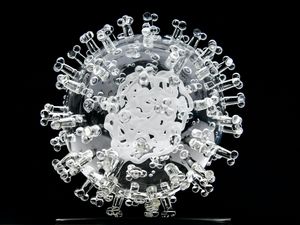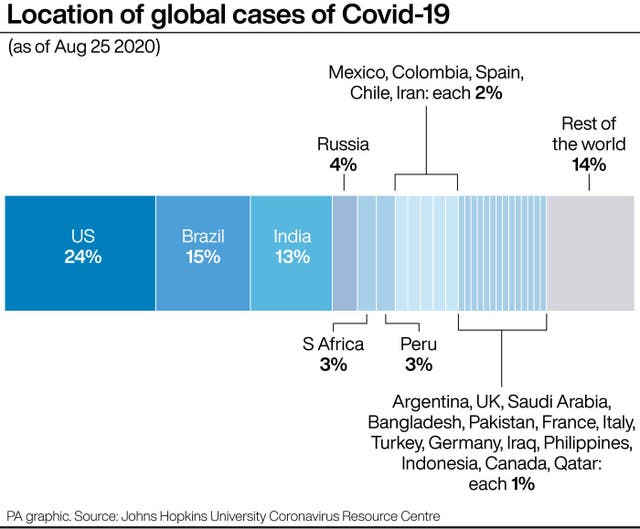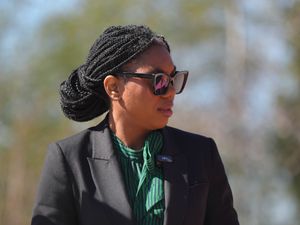Study to find out whether mouthwash can reduce spread of Covid-19
There have been calls from researchers to test the idea that mouthwash could potentially reduce transmission in the early stages of infection.

Scientists in Wales will launch a study this week into whether mouthwash can be used to help prevent the spread of coronavirus.
Covid-19 patients at the University Hospital of Wales in Cardiff will take part in new research to find out if it has the potential to reduce the levels of the virus in saliva.
SARS-CoV-2 is an enveloped virus with an outer fatty (lipid) membrane, and previous studies are said to show that agents usually found in mouthwash – such as low amounts of ethanol, povidone-iodine and cetylpyridinium – could disrupt the membranes of other lipid viruses.
Dentyl is the only UK mouthwash brand to take part in the 12-week study led by Professor David Thomas from Cardiff University and titled: “The measurement of mouthwash anti-viral activity against Covid-19”.
Dr Thomas said: “We are very keen to start this much-needed clinical trial as our review of the literature indicated that we need to look deeper into the possible positive impact that mouthwashes may play on the transmission of Covid-19.

“We believe this is an exciting opportunity to determine whether a compound that can inactivate an enveloped virus in a test tube may work in humans, actively shedding the virus in the mouth and throat.”
Jerry Randall, CEO of Venture Life, Dentyl’s parent company, said: “We are excited at the prospect that this long-standing, well-known mouthwash product could help in the fight against Covid-19.”
The launch of the study comes after a group of scientists in May called for urgent research into the use of readily available mouthwash to reduce the spread of the virus.
Publishing their review in the Function journal, the authors wrote: “We highlight that already published research on other enveloped viruses, including coronaviruses, directly supports the idea that further research is needed on whether oral rinsing could be considered as a potential way to reduce transmission of SARS-CoV-2.”
Lead author Professor Valerie O’Donnell, co-director of Cardiff University’s Systems Immunity Research Institute, said at the time: “Safe use of mouthwash – as in gargling – has so far not been considered by public health bodies in the UK.”
She added: “This is an under-researched area of major clinical need – and we hope that research projects will be quickly mobilised to further evaluate this.”
The completed research will be peer reviewed before it is published in around six months’ time.





